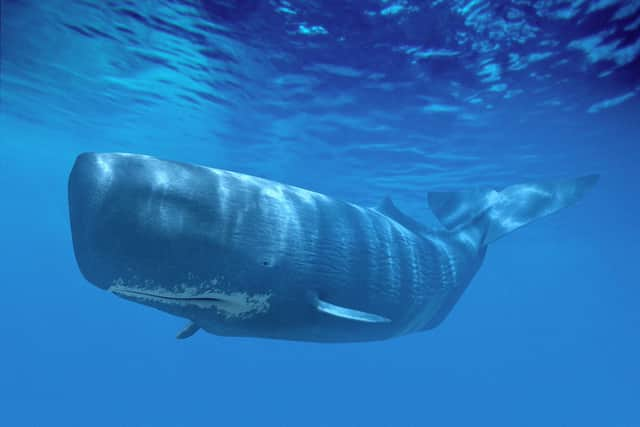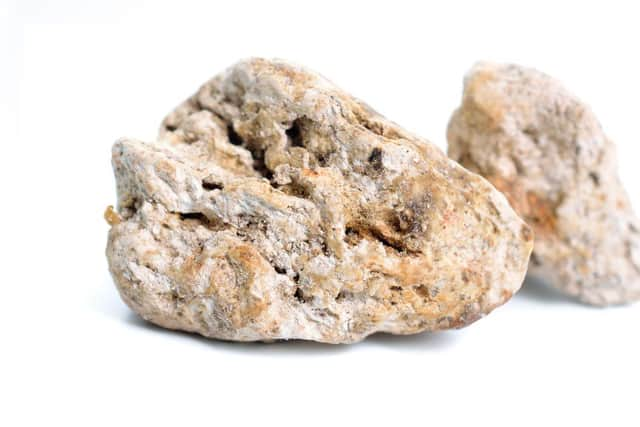Ambergris: What is the smelly substance worth more than gold and can I find it in Scotland?
and live on Freeview channel 276
A group of Yemen fishermen recently found $1.5million-worth of ambergris in the belly of a sperm whale carcass they found floating in the Gulf of Aden.
So, here’s what we know about this strange substance and why you should keep your eye out for it when you’re walking on Scotland’s coast.
What is ambergris?


Advertisement
Hide AdAdvertisement
Hide AdOne of sperm whales’ favourite foods is squid, but they are not able to digest the animals’ sharp beaks. They mostly regurgitate them, but on rare occasions they will end up in their intestines, where a waxy substance is produced to protect the whale’s insides from being perforated. Scientists are unclear how it is then expelled – either through the mouth or the rectum – but the substance ends up floating in the sea. It can then end up washing up on beaches. This is ambergris.
Why is it worth so much?
By weight, ambergris is worth more than gold because it is used by the perfume industry as an ingredient in the most expensive scents. In days gone by it was also highly-prized as incense, an aphrodisiac and a medicine.
Can I find it in Scotland?


Ambergris can be found pretty much anywhere with a coastline, including Scotland. The substance can spend many months floating in the sea so, depending on the ocean currents, a fortune could wash up on your local beach today. There have been several reports of people finding ambergris on UK beaches, including in the Orkney Islands.
How can I identify it?
Depending on how long it has been floating in the sea, ambergris can look – and smell – very different. It can be white, grey, black or brown in colour, with a hard rock-like texture. It will feel waxy, or oily, to the touch and you may be able to see the pointed squid beaks within it.
Advertisement
Hide AdAdvertisement
Hide AdRelatively fresh ambergris typically smells of cow dung, while lumps which have spent more time in the water can smell of more fragrant horse stables. Decades-old ambergris can begin to smell quite nice, but retains a hint of manure. Apparently dogs love the smell of ambergris.
If you press a heated needle into ambergris it should quickly melt, creating a glossy and sticky black or caramel liquid.
What should I do if I find some?
Make sure you don’t put it into an airtight container – ambergris needs to breathe. There are a number of online companies who will test the substance to confirm it is ambergris and, if it is, it is entirely legal to sell it in the UK. In the US and Australia the trade of ambergris is banned.